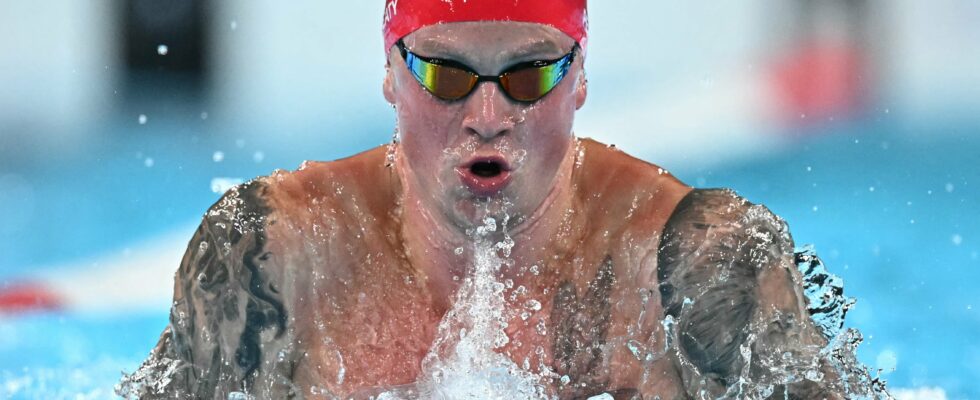A remarkable ceremony, numerous medals and brilliant French athletes… The Paris 2024 Olympic Games are preparing to deliver an almost perfect performance. The only downside: Covid-19. On Tuesday, July 30, Australian swimmer Lani Pallister did not line up for the Olympic 1,500m heats after testing positive for the virus. The 22-year-old athlete, who finished third at the 2022 World Championships in Budapest, was a good chance for her country to win a medal. But she “decided to save her energy for Thursday’s 4x200m freestyle relay,” the Committee said.
British swimmer Adam Peaty also tested positive for Covid-19 on Monday, the day after his silver medal in the 100m breaststroke final. The 29-year-old breaststroker “hopes to return to competition for the relay events later in the swimming programme”, reacted “Team GB” in a statement. It also specifies that Peaty had started to feel ill, with throat symptoms, before his race on July 28, that his symptoms worsened afterwards, and that he then tested positive for Covid-19. However, some believe that the athlete should have been tested before.
“Since then, nearly a dozen swimmers, including several members of the Australian women’s water polo team, have tested positive, raising questions about the extent of the spread of the virus, particularly in swimming pools,” the American media outlet points out. Time. In addition, there are rumors of sick swimmers among the U.S. delegation. Moreover, cases involving water sports raise questions about whether being in the water with infected athletes increases the risk of spread.
Light precautions
After spoiling the smooth running of the Tokyo Olympics – which were held behind closed doors – the virus is trying to get into the locker rooms at the risk of cutting short the adventure of some champions. While no epidemic has yet been reported, the number of infections could increase in the coming days. Especially since the restrictions put in place by the Olympic Games Organizing Committee (Cojo) remain minimal. Sitting in the Parisian stands, almost no fans are wearing masks and social distancing remains non-existent. And unlike the 2021 Tokyo Games, athletes are not subject to regular checks.
At Timean Olympic Committee spokesperson says U.S. athletes are typically tested only if they have symptoms such as a persistent cough, fever, sore throat, or are generally feeling unwell, and COVID-19 is present. In other words, there is no rule preventing athletes from competing if they have a runny nose.
Certainly, the Olympic Games Organizing Committee (COJO) has warned athletes who tested positive, as well as those with respiratory symptoms. Sick people are invited to “wear a mask in the presence of others, limit contact and wash their hands regularly with soap and water or hydroalcoholic gel”, report our colleagues from Parisian. What’s next? Infected athletes are moved to an isolated room to limit the risk of infecting others. Separate transportation is also organized for them and their meals are delivered to them so that they do not eat in the common dining room. The Olympic medical clinics also have isolation rooms to accommodate people who test positive. However, the organizers do not impose any restrictions on infected athletes in terms of isolation period. It is up to their staff to decide.
On the website of the Ministry of Labor and Healththe precautions also remain vague: “It is important to remember that Covid-19 is under constant surveillance and will be even more so during the period of the Olympic Games. In the event of an increase in the number of cases or an outbreak of acute respiratory infection, the health authorities will adjust the conduct to be adopted.” But some delegations are not waiting for orders from the organizers of the Olympic Games to protect themselves. For example, the Belgians, for whom wearing a mask is mandatory “as soon as they leave the delegation bubble and are less than 1.5 m from other people, particularly in the restaurant of the Olympic village,” the daily specifies. The evening. Prevention is better than cure.
